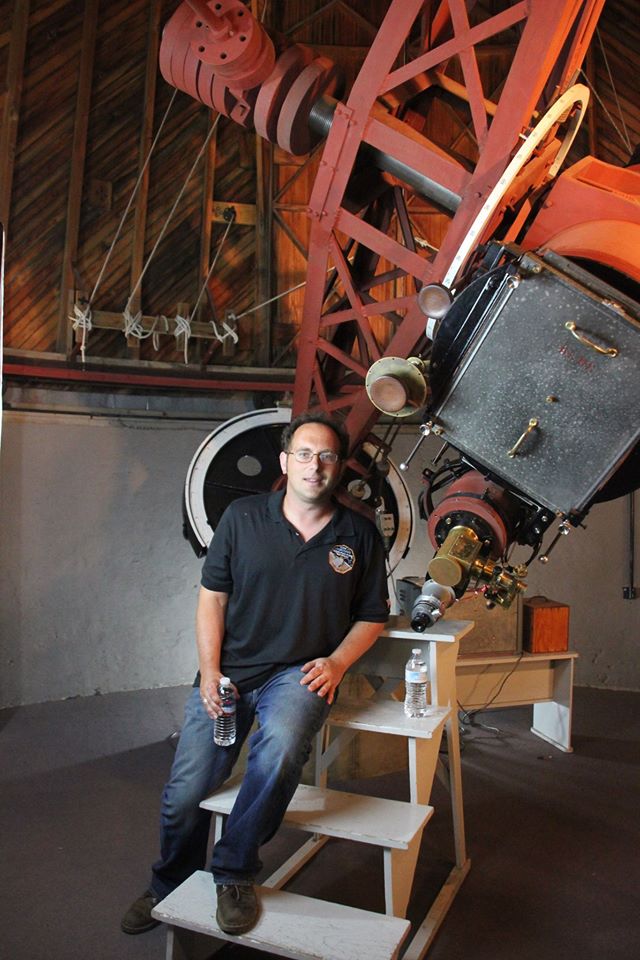
Ted Stryk
Nov. 21, 2018
By Bob Fowler
Roane State staff writer
A Roane State associate professor will have a front-row seat on New Year’s Day when a spacecraft flies by a small object 20-30 miles across and billions of miles away from Earth at the edge of the solar system.
The flyby of that icy mini-world dubbed Ultima Thule may answer questions about the origin of the solar system, said Ted Stryk, who teaches philosophy and English at Roane State.
He said Ultima Thule is thought to have essentially been undisturbed since the solar system was formed eons ago. It is a billion miles beyond Pluto.
Stryk on Jan. 1 will be in the Applied Physics Lab of Johns Hopkins University in Laurel, Md.
That’s when the flyby by the nuclear-powered spacecraft – triangular and about the size of a grand piano – occurs. The flyby will only last a couple of hours, but scientists in the lab expect to be analyzing images from it for years to come.
New Horizons is targeted to pass within some 2,200 miles of Ultima Thule during its voyage through what’s called the Kuiper Belt, an unimaginably vast region filled with objects ranging from dwarf planets to frozen fragments dating back to the birth of the solar system.
The Roane State associate professor was again asked by NASA to participate in analyzing images sent from New Horizons because of his proven expertise in image processing techniques.
Moving at the speed of light, the images still take more than four hours to arrive.
Stryk has been an amateur astronomer since he was 10 and has developed ways to extract the most amount of data from transmitted images. NASA learned of his skills, and he became involved in the New Horizons project during its flyby of Pluto; the subject of an ongoing debate whether it’s a planet or not.
He was at the Johns Hopkins lab in July 2015 for that historic event, when surprising facts about Pluto were discovered, including that its atmosphere is blue and has nitrogen glaciers, including one that is the largest glacier of any kind in the solar system.
He was among 200 researchers who received certificates of achievement from NASA in January 2017 for helping learn more about Pluto.
Stryk said he’ll be traveling in November and January for meetings in preparation for the Ultima Thule flyby, and then to assess data from it. Once the initial images are downloaded after Jan. 1, Stryk said there’ll be a quick turnaround of the initial information because a press conference is planned days later.
The Roane State associate professor and some 700 other scientists attended the Division for Planetary Science’s week-long meeting at the Knoxville Convention Center in late October. The group, devoted to solar system research, is a component of the American Astronomical Society.
Roane State Community College does not discriminate on the basis of race, color, religion, creed, ethnicity or national origin, sex, disability, age, status as protected veteran or any other class protected by Federal or State laws and regulation and by Tennessee board of Regents policies with respect to employment, programs, and activities. View full non-discrimination policy.